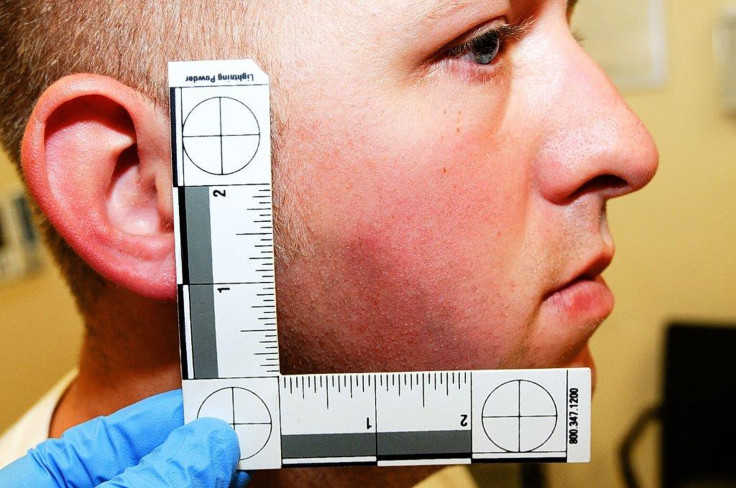Will Michael Brown's Family Sue Darren Wilson? Why A Civil Suit Faces Hurdles

Michael Brown’s family would face a number of legal hurdles if they filed a lawsuit against former Ferguson police Officer Darren Wilson in civil court, including laws that make it impossible to go after police officers as individuals for legal liability in state courts, according to law experts. Even if successful, a civil suit against Wilson isn’t likely to result in significant monetary damages, and a case against the city of Ferguson, Missouri, or St. Louis County would be even tougher to win.
The difficulty of winning a civil case against Wilson was highlighted last week when a grand jury declined to indict him for shooting and killing 18-year-old Brown in August. The grand jury dealt with a legal standard called probable cause, which is a lower standard than a jury in a civil case has to consider called preponderance of the evidence. In a civil case, a jury would have to decide whether it was more than likely Wilson caused Brown’s wrongful death or violated his civil rights -- depending on which law a Brown family suit is filed under.
Police officers usually are viewed as trustworthy witnesses, and juries are sympathetic to officers, whom they believe have to make split-second decisions to use lethal force, said Kami Chavis Simmons, a professor of law at Wake Forest University in North Carolina. “That is the nature of the difficulty in some of these cases,” she said. “The failure to get an indictment demonstrates the difficulties that [the Brown family] might have in winning a civil suit.”
If a civil suit is filed, the Brown family is likely to submit a civil rights lawsuit. Suing for wrongful death won’t get far in a Missouri courtroom, said Marcia McCormick, a professor at St. Louis University School of Law. Wilson is covered under sovereign immunity, which applies to state officials, including police officers. It provides them immunity if they are sued in their official capacity. Another type of immunity, called official immunity, offers slightly less protection, but protects officials when they engage in allegedly negligent acts, McCormick said.
But those immunities would not apply to a federal civil rights suit. Wilson would be immune only if he argues it was obvious he was not violating the Constitution during the shooting. “The immunity is pretty protective of police officers, but there have been a number of situations in which criminal charges have never been brought but civil rights suits have been successful,” McCormick said.
Ekow N. Yankah, a law professor at Cardozo School of Law in New York, said Wilson’s defense to the grand jury -- that he acted in self-defense -- would surely be used in a civil case, and the defense is hard to overcome when the victim isn’t alive to offer testimony. “I share the feeling that it’s going to be extraordinarily difficult for [the Brown family] to win any sort of civil case and there are many reasons why,” he said, including “problematic physical evidence” in the case that makes it hard to determine what happened. In a civil case, it would be the Brown family’s burden to prove Wilson is liable. “Every road I look down, I think it’s a tough road ahead for a civil case,” Yankah said.
If the Brown family did win a civil suit, the monetary damages awarded likely would be a sum Wilson would be unable to satisfy. The average Ferguson police officer makes $66,000 a year. In contrast, O.J. Simpson, the Hall of Fame football player who was found not guilty in a criminal case of killing his ex-wife and her friend, but found culpable in a civil trial, still hasn’t paid off the $33 million in damages awarded to the victims’ families.
“Even if the Browns could proceed against Officer Wilson, there’s an issue over how much money he might have available. The deeper pockets are the city or the county,” said Daniel Medwed, a professor at Northeastern University School of Law in Boston.
That means the Brown family would likely file a case against the Ferguson Police Department, the city of Ferguson and/or St. Louis County. But a case against the local governments might be even tougher than a case against Wilson, according to legal experts. The Brown family would have to argue there is a pervasive pattern of discrimination in Ferguson and that pattern led to the circumstances of the shooting. “It’s just a very difficult evidentiary burden to meet,” Simmons said.
That strategy could work to the Brown family’s advantage if Ferguson decides a settlement would be beneficial to the city because it would end media attention. Ferguson may also have a financial incentive to settle, McCormick said. “Even if there’s pro bono counsel, there’s still expert witnesses,” she said. “Trials are extremely expensive.”
At the same time, a multimillion-dollar settlement may look like a payoff to the Brown family and an admission of guilt. Ferguson may want to fight the case to stand up for its police department’s integrity.
“For the city, settling is not an attractive option,” Yankah said. “It’s very painful for Ferguson to settle, as well as to litigate, so they may as well litigate as a matter of principle.”
© Copyright IBTimes 2024. All rights reserved.






















